

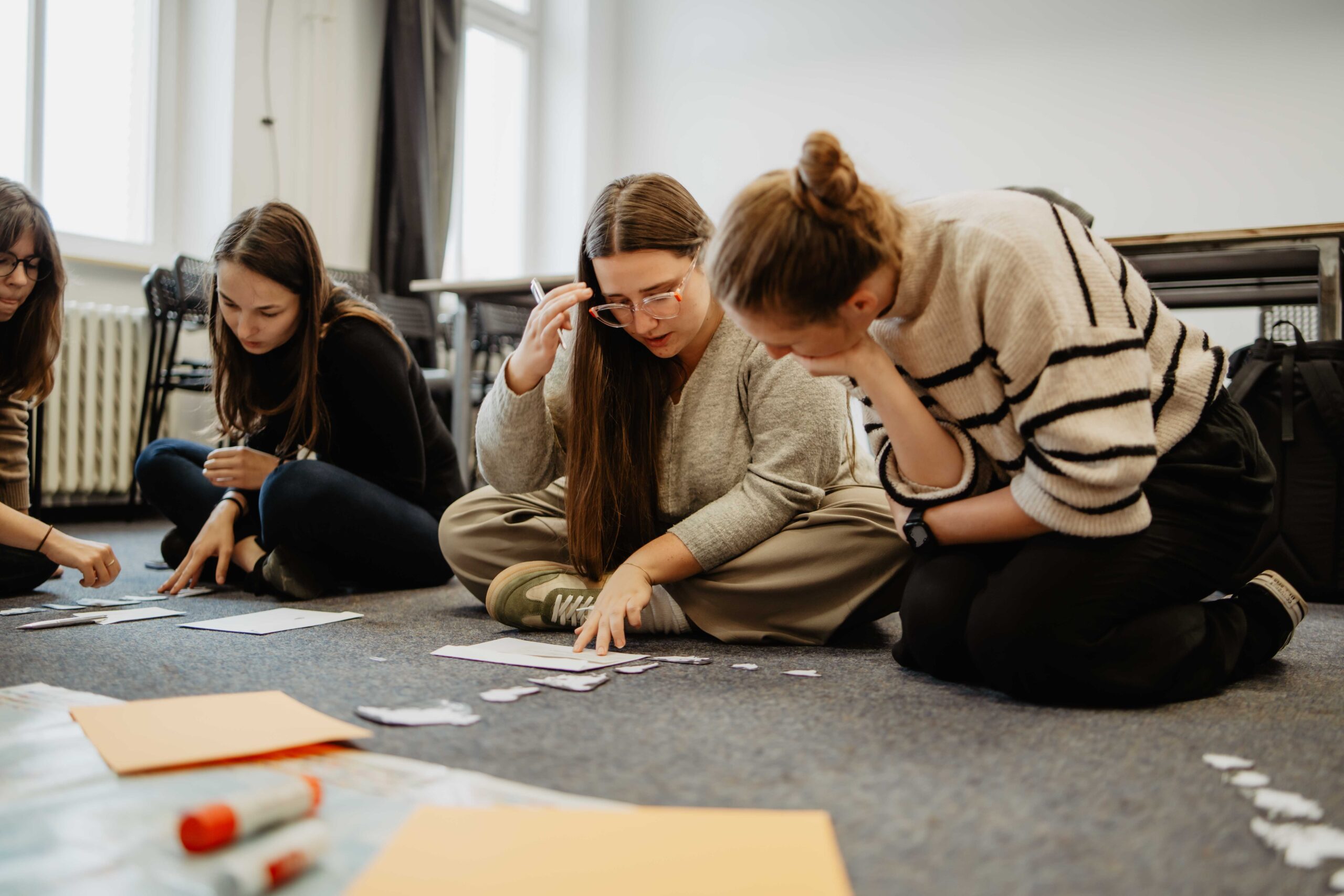
On September 26, 2025, a seminar for future teachers, organized by the Czech GET team, took place at the Scout Institute in Olomouc. It was the first event of this kind within our project in the Czech Republic and attracted students from various teacher training programs. Its main goal was to provide inspiration and practical ideas for integrating global topics into teaching.
The seminar focused on the theme of international inequality, which participants explored from different perspectives. The program was based on experiential and active learning — future teachers could try out the activities themselves, just as they might later use them in their own classrooms.
At the beginning, the group reflected on how the world’s population and wealth are distributed. Using a large map, beans representing 100% of the global population, and coins symbolizing 100% of the world’s GDP, they allocated the proportions among continents and discussed the possible consequences of this unequal distribution.
In the second part, participants delved into historical contexts — through texts on colonialism, the Industrial Revolution, and capitalism — they created blackout poetry and concept maps, which then served as the basis for a group discussion. Finally, they explored a wide range of teaching materials and resources that can help them bring global topics into their future classrooms.
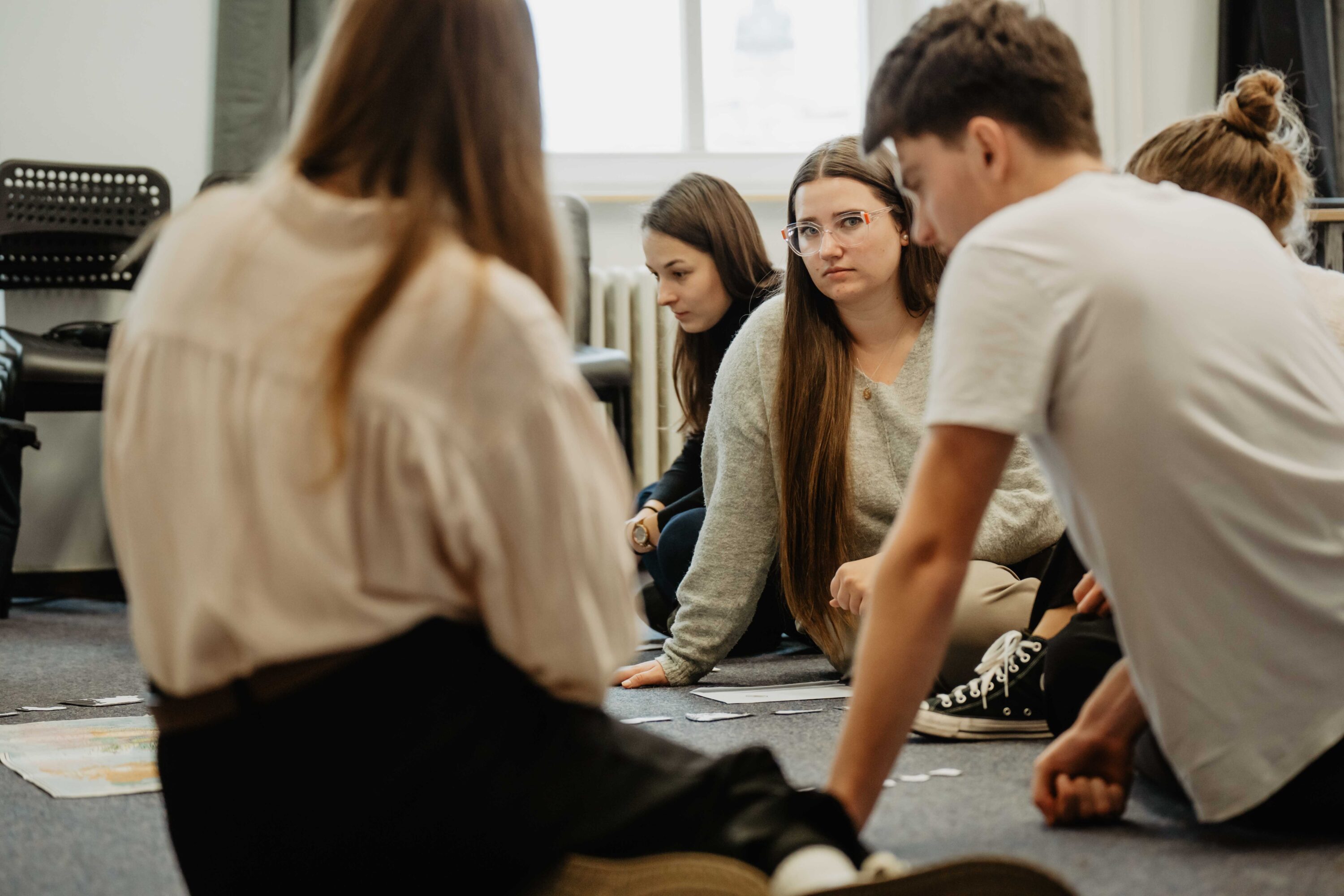
According to lecturer Lenka Pánková, coordinator of the GET project in the Czech Republic for the partner ARPOK, the main goal of these seminars is practicality.
“It’s clear that future teachers are genuinely interested in bringing global topics into their subjects. We really appreciate that they dedicate their free time to attending these seminars. We focus on making them very hands-on, so participants can experience each lesson as they might later implement it with their own students. What I see as an extra value is that we also highlight cross-curricular connections — and we not only share content but also methods that participants can apply even beyond global education.”, said Pánková.
The motivation of the participants themselves was another great takeaway. In their applications, they expressed a desire to pass global topics on to younger generations, to develop critical thinking in their students, and to connect history lessons with the roots of today’s global issues.
“I’d like to enter my teaching practice as prepared as possible, and I believe further education during my studies is the best way to achieve that,” wrote one participant. Another added: “I consider it very important to develop critical thinking in pupils, but so far I only have theoretical knowledge. I’d like to gain inspiration and practical tools to do this effectively.”
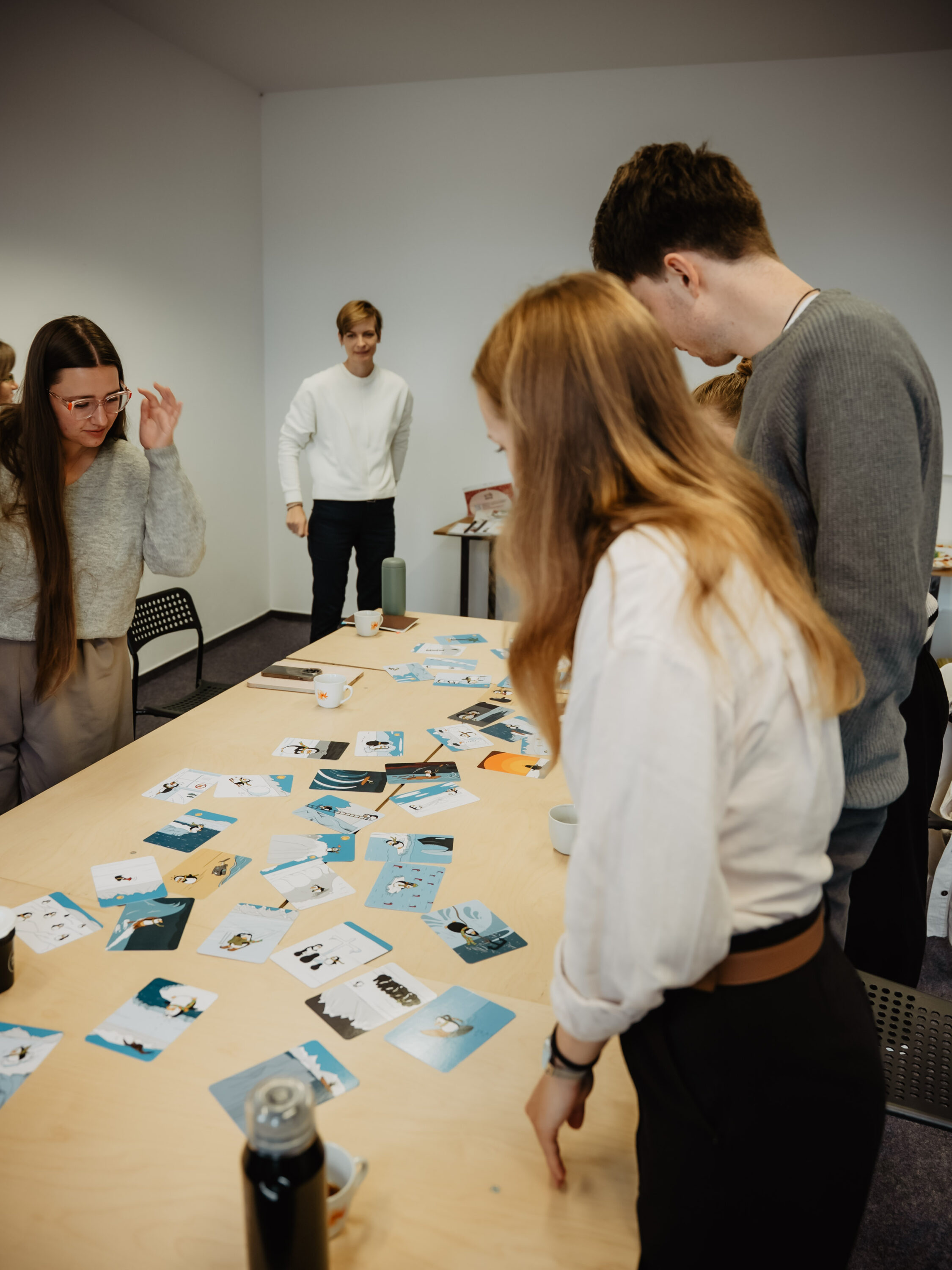
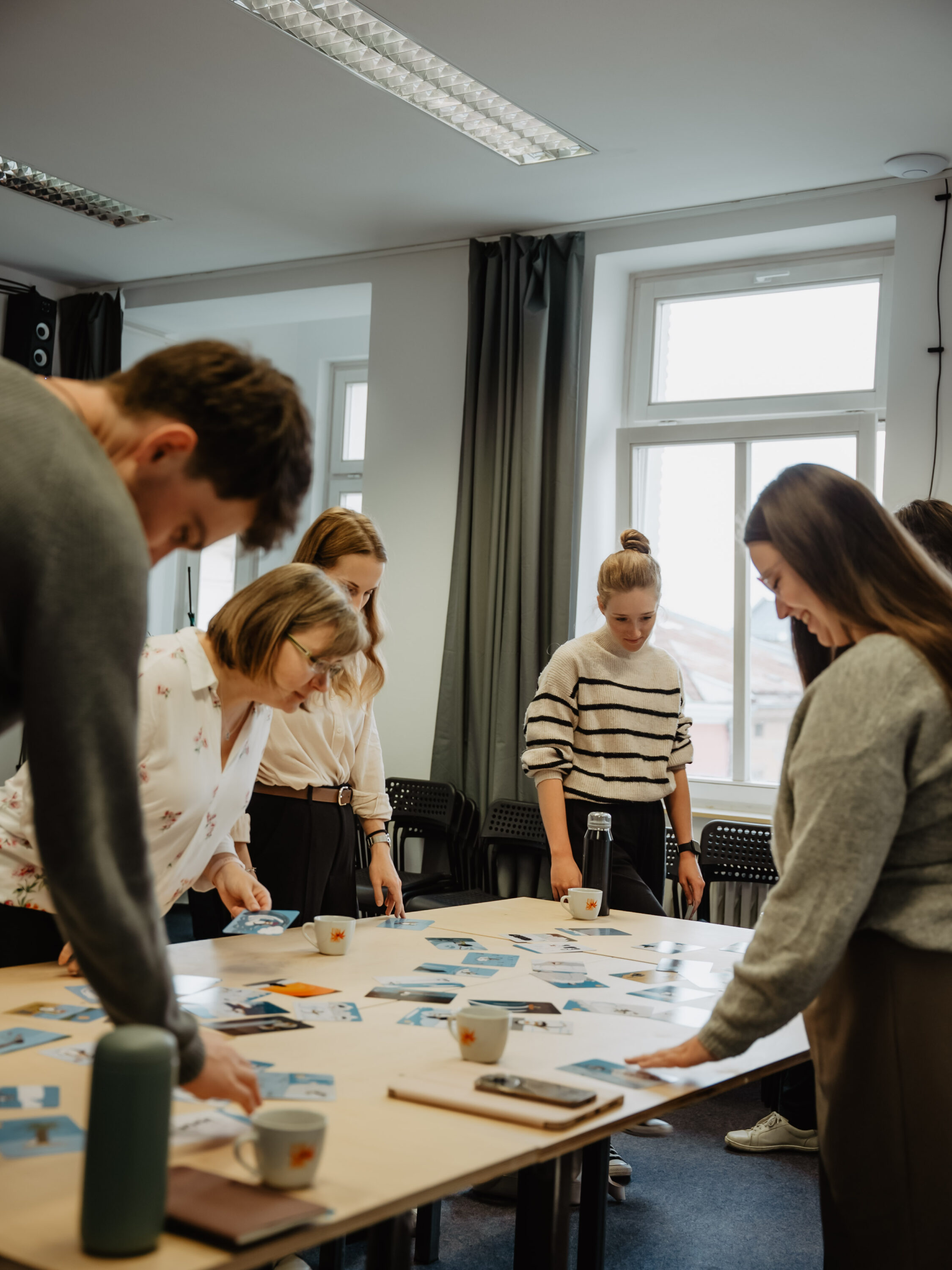
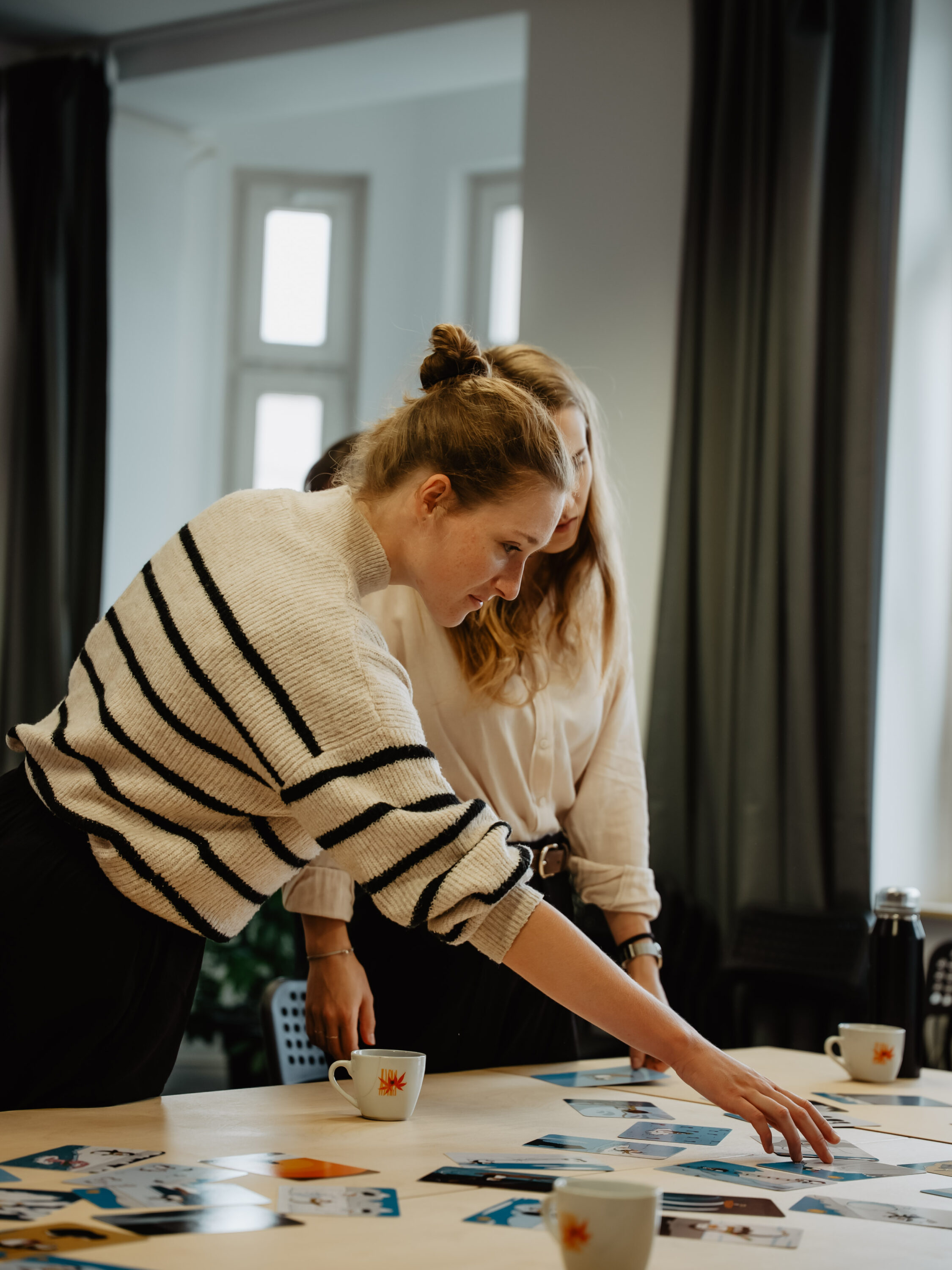
The first GET seminar in the Czech Republic thus showed that the upcoming generation of teachers is deeply interested in global citizenship education. Whether through sharing motivation, creating activities, or exploring global interconnections, the event offered all participants an opportunity to take another step toward becoming thoughtful and inspiring educators.
Within the GET project, we bring GCE and global issues into European classrooms through seminars, training, and free educational materials. Explore all of our project resources and follow us on social media to stay updated on our activities.
